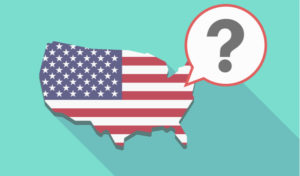
The Cato Institute has released its much anticipated Freedom in the 50 States ranking. Scoring best of all fifty states was Florida. The researchers who put together the scores highlighted Florida’s lack of an individual income tax and the Sunshine State’s economic freedom as its top draws. Here’s what they wrote about Florida:
Lacking an individual income tax and featuring a hot climate, Florida has long enjoyed substantial migration of well-off retirees. But as we’ve noted in the past, the state attracts more than seniors, as others vote with their feet for good weather and the increased opportunity afforded by Florida’s freer society. Florida does especially well on economic freedom, especially on fiscal policy. Indeed, it is our top state on both. Regulatory policy is improved but mediocre in comparison to the fiscal side. Florida’s personal freedom has lagged in the past; however, it has improved a lot over the past two years.
Florida’s state-level tax collections are more than a standard deviation and a half below the national average, while its local tax collections are about average. Florida’s fiscal decentralization does not offer a great deal of choice to homeowners, however, because the state has only about half an effective competing jurisdiction per 100 square miles. Government consumption and debt are lower than average. Government employment is much below average, falling from 11.2 percent of private employment in 2010 to 9 percent in 2016.
Florida’s regulatory policy is middling relative to other states but has gotten better in absolute terms, leaving aside federalized policies. Despite the temptations posed by high housing demand, homeowners have not been able to enact exclusionary zoning on anything like the levels of California or New Hampshire. Our two measures of local zoning give a split judgment on just how restrictive Florida is. Land-use regulation appears to be a major political issue, but the courts have tools to restrain local governments, as the state has a particularly strong regulatory takings law. Florida has gone further than just about any other state to tighten criteria for eminent domain. It does have a law restricting employers from banning guns on certain company property, such as parking lots, which violates employers’ property rights. Labor law is also above average because of a right-to-work law, but the state has a minimum wage ($8.25 per hour in 2018). Regulations on managed care plans are among the worst in the country, with standing referrals, direct access to specialists, and a ban on financial incentives to providers. Cable and telecommunications are partially deregulated. The civil liability system is better than average and has improved significantly since the 2000s. On the other side of the ledger, the state is far below average on occupational freedom (it is in the bottom five), the state has a certificate-of-need law for hospitals, and the homeowner’s insurance market is among the most regulated and dysfunctional in the country. Physician assistants are now free to prescribe, but nurse practitioners and dental hygienists are not yet free from independent practice limitations.
After falling relative to other states for a decade, Florida has improved its personal freedom ranking over the past two years while enjoying an absolute improvement over the last six years. It is now well above average. Part of this bump was because of the Supreme Court’s nationalization of same-sex marriage. Before that decision, Florida did not recognize any kind of same-sex partnership and it banned private contracts amounting to marriage with a super-DOMA. Florida also reformed its civil asset forfeiture regimes, including requiring proof “beyond a reasonable doubt” for forfeitures. On the downside, the state’s crime-adjusted incarceration rate has fallen a bit from its high but is still a lot worse than average (although criminal justice reform efforts promise help on that front). Drug arrests are also high despite declining lately, but arrests for other victimless crimes have fallen substantially. Florida is one of the top states for educational freedom, although homeschool regulations remain substantial. The cannabis regime is largely unreformed despite recent liberalization of medical marijuana policy (which we recommended in the fourth edition), while alcohol is lightly regulated despite beer and wine taxes being a bit high. Gun rights are mediocre and became more restrictive in 2018, as the state has waiting periods for handguns, local dealer licensing, and virtually no open carry. It does have a “stand your ground” law and protects the right to use sound suppressors. Tobacco freedom is middling. Automated license plate reader data use and retention have been partially reformed.
Policy Recommendations
- Fiscal: Trim spending on sanitation and sewerage, public parks, parking lots, public utilities, and air transportation, which are all higher as a share of income than the national average. Use the proceeds to cut general and utility sales taxes.
- Regulatory: Reform the occupational licensing system to free residents who are currently stymied by those barriers to entry and opportunity. Candidates for deregulation include farm labor contractors, interior designers, medical and clinical laboratory technologists, pharmacy technicians, dispensing opticians, funeral attendants, and bill and account collectors.
- Personal: Enact the following criminal justice reforms: (a) close the loophole allowing for seizure of cash and monetary instruments without an arrest, and close the equitable sharing end-run around state forfeiture law; and (b) end driver’s license suspensions for non-driving-related drug convictions, as most of the country has done, and provide “safety valves” from mandatory minimum sentences.
Take a look at the Freedom in the 50 States map here to see where your state ranks.
Freedom in the 50 States
Originally posted on Yoursurvivalguy.com.



